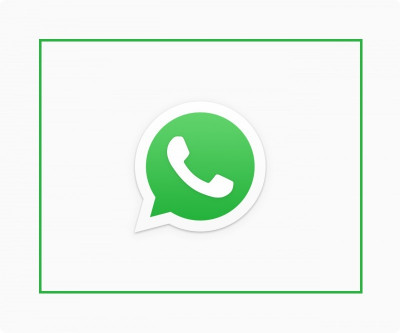Whatsapp privacy row – What the Government said on Right to Privacy
Following WhatsApp filing a legal complaint against the Indian government, seeking to block the Information Technology (Intermediary Guidelines and Digital Media Ethics Code) Rules 2021, which came into effect from May 26, 2021, the Government of India has affirmed that it recognises that ‘Right to Privacy’ is a Fundamental right and that it is committed to ensure the same to its citizens.
However, at the same time, the Government said that as per all established judicial dictum, no Fundamental Right, including the Right to Privacy, is absolute and it is “subject to reasonable restrictions”. The requirements in the Intermediary Guidelines pertaining to the first originator of information are an example of such a reasonable restriction.
In a statement issued, Union Minister Ravi Shankar Prasad stated that “the Government of India is committed to ensure the Right of Privacy to all its citizens, but at the same time it is also the responsibility of the government to maintain law and order and ensure national security.” He also assured that “none of the measures proposed by India will impact the normal functioning of WhatsApp in any manner whatsoever and for the common users, there will be no impact”.
The Government reiterated that an order, to trace first originator, under Rule 4(2) of the Intermediary Guidelines shall be passed only for the purposes of prevention, investigation, punishment, etc., of inter alia an offence relating to sovereignty, integrity and security of India, public order incitement to an offence relating to rape, sexually explicit material or child sexual abuse material punishable with imprisonment for not less than five years.
“We cannot deny as to how in cases of mob lynching and riots, etc., repeated WhatsApp messages are circulated and re-circulated whose content are already in public domain. Hence, the role of who originated is very important,” the statement added.
The press statement goes on to mention the Rules as Per Law of Land, which are:
- Rule 4(2) of the Intermediary Guidelines is not a measure in isolation. The rules have been framed after consultation with various stakeholders and social media intermediaries, including but not limited toWhatsApp.
- After October 2018, no specific objection has been made by WhatsApp to Government of India in writing relating to the requirement to trace the first originator in relation to serious offences. They have generally sought time to extend the time for enforcement of guidelines but did not make any formal reference that traceability is not possible.
- WhatsApp’s challenge, at the very last moment, and despite having sufficient time and opportunity available during consultation process and after the rules were enacted, to the Intermediary Guidelines is an unfortunate attempt to prevent the same from coming into effect.
- Any operations being run in India are subject to the law of the land. WhatsApp’s refusal to comply with the guidelines is a clear act of defiance of a measure whose intent can certainly not be doubted.
- At one end, WhatsApp seeks to mandate a privacy policy wherein it will share the data of all its users with its parent company, Facebook, for marketing and advertising purposes.
- On the other hand, WhatsApp makes every effort to refuse the enactment of the Intermediary Guidelines which are necessary to uphold law and order and curb the menace of fake news.
- WhatsApp defends its refusal to enact the Intermediary Guidelines by carving out an exception that messages on the platform are end to end encrypted.
- It is pertinent to note that the rule to trace the first originator of information is mandatory for each and every significant social media intermediary, irrespective of their method of operation.
- Minister Shri Ravi Shankar Prasad said that “the entire debate on whether encryption would be maintained or not is misplaced. Whether Right to Privacy is ensured through using encryption technology or some other technology is entirely the purview of the social media intermediary. The Government of India is committed to ensuring Right of Privacy to all its citizens as well as have the means and the information necessary to ensure public order and maintain national security. It is WhatsApp’s responsibility to find a technical solution, whether through encryption or otherwise, that both happen.”
- As a significant social media intermediary, WhatsApp seeks a safe harbour protection as per the provisions of the Information Technology Act. However, in a befuddling act, they seek to avoid responsibility and refuse to enact the very steps which permit them a safe harbour provision.






Share
Facebook
YouTube
Tweet
Twitter
LinkedIn